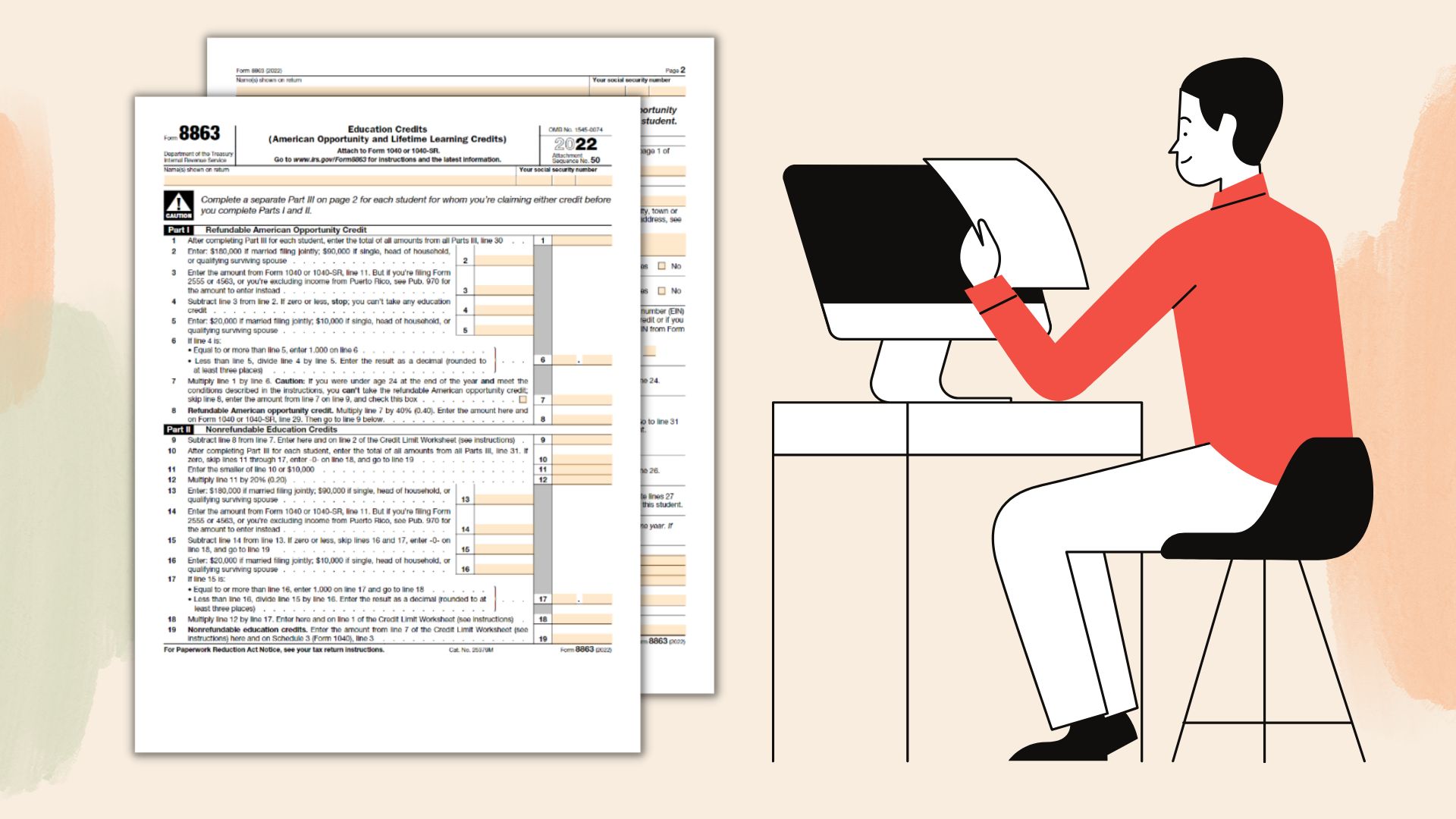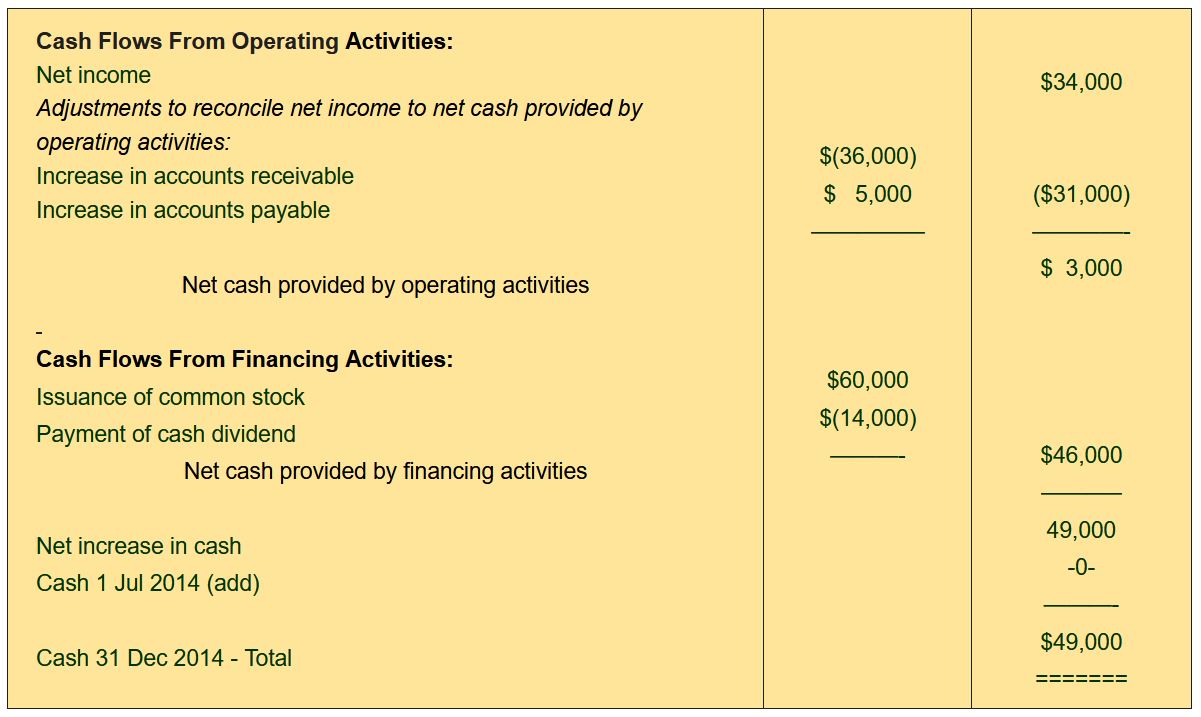

Finance
How To Get Funding For Ph.D.
Published: December 22, 2023
Learn how to secure funding for your Ph.D. studies in Finance and achieve your academic goals. Explore scholarships, grants, and other financial aid options.
(Many of the links in this article redirect to a specific reviewed product. Your purchase of these products through affiliate links helps to generate commission for LiveWell, at no extra cost. Learn more)
Table of Contents
Introduction
Welcome to the world of academia, where endless possibilities and groundbreaking research are waiting to be explored. Pursuing a Ph.D. is a remarkable feat that requires dedication, time, and, of course, funding. Securing funding for your Ph.D. journey can be a daunting task, but with the right strategies and resources, it can become a realistic endeavor.
Obtaining financial support for your Ph.D. not only alleviates the financial burden but also provides you with the freedom to focus solely on your research and academic pursuits. In this article, we will explore various avenues to help you secure funding for your Ph.D., from finding the right funding sources to writing a strong research proposal, applying for grants and scholarships, networking with potential supervisors, and managing funding offers.
Before delving into the nitty-gritty details of the funding process, it’s essential to understand the significance of obtaining funding for your Ph.D. program. Funding not only provides the necessary financial resources to cover tuition fees and living expenses but also offers access to research support, professional development opportunities, and networking events.
Moreover, funding allows you to fully immerse yourself in your research without the added stress of working multiple jobs or taking out loans. It provides the freedom to dedicate your time and energy to your studies, experimentations, and intellectual explorations, which ultimately enhances the quality of your research.
Additionally, funding for your Ph.D. can open doors to collaborations and partnerships with leading experts in your field. It provides the opportunity to attend conferences, present your research, and engage with peers and professionals who can contribute to your academic growth.
In the following sections, we will guide you through the process of securing funding for your Ph.D. program. Whether you’re just getting started or already in the midst of your Ph.D., these strategies and tips will help you navigate the complex world of funding and increase your chances of success.
Finding a Funding Source
When it comes to funding your Ph.D., the first step is to identify potential funding sources. There are various options available, depending on your field of study, research topic, and location. Here are some avenues to explore:
- University Funding: Start by checking if your university offers any funding opportunities specifically for Ph.D. students. Many universities have scholarships, fellowships, or assistantships available for students in various disciplines. These funding options may be merit-based, need-based, or tied to specific research areas.
- Government Grants: Government agencies, both at the national and regional levels, often provide funding for research in areas of national importance. Check with governmental departments relevant to your field, such as the National Science Foundation or the Department of Health, for potential grants and scholarships.
- Industry and Corporate Funding: Some companies and industries offer funding for research projects that align with their goals or interests. Explore partnerships with corporations or industries related to your field of study for potential funding opportunities or research collaborations.
- Nonprofit Organizations: Many nonprofit organizations focus on supporting research and education in specific fields. Research foundations, professional associations, and philanthropic organizations may offer grants or scholarships that can be utilized for Ph.D. studies.
- International Scholarships: If you’re considering pursuing your Ph.D. abroad, explore international scholarship programs that are open to students from around the world. Organizations like Fulbright, Chevening, and DAAD offer scholarships for international students to study in different countries.
When searching for funding sources, utilize online databases and search engines specifically designed to help students find funding opportunities. Websites like GradSense, ProFellow, and ScholarshipPortal allow you to search for scholarships, fellowships, and grants based on your location, field of study, and desired level of funding.
Remember to keep an open mind and consider a variety of funding sources. Don’t limit yourself to traditional options and be willing to explore unconventional avenues. Additionally, consider reaching out to faculty members, advisors, and senior Ph.D. students in your field for guidance and suggestions on potential funding options.
Once you have identified potential funding sources, it’s important to thoroughly review the eligibility criteria, application process, and deadlines for each opportunity. Pay attention to any specific requirements or documents needed, such as research proposals, transcripts, letters of recommendation, or personal statements. Properly understanding the requirements will increase your chances of securing funding and avoid wasting time on applications that may not be a good fit.
In the next sections, we will discuss how to craft a strong research proposal, apply for scholarships and grants, network with potential supervisors, and manage funding offers. These insights will support you in your quest to secure funding for your Ph.D. studies and ensure a successful academic journey.
Writing a Strong Research Proposal
One of the key components in securing funding for your Ph.D. is writing a strong research proposal. A research proposal is a document that outlines the objectives, methodology, and potential impact of your proposed research project. It serves as a roadmap to convince funding organizations or potential supervisors of the importance and feasibility of your study. Here are some tips to help you craft a compelling research proposal:
- Clearly define your research question: Begin by identifying a clear and specific research question that addresses a gap in the existing knowledge or contributes to your field. Clearly articulate the significance of your research question and explain how it relates to current debates or challenges in your discipline.
- Provide a concise overview of the literature: Demonstrate your familiarity with existing research related to your topic. Summarize key studies, theories, and methodologies employed by previous scholars. This will show that you have a solid foundation in your field and that your proposed research builds upon existing knowledge.
- Outline your research methodology: Describe the research design, methods, and data analysis techniques you plan to employ in your study. Explain why your chosen methods are appropriate for addressing your research question and how they will contribute to the field. Be specific about the data sources you will use or the experiments you will conduct.
- Highlight the potential impact and significance: Articulate the potential impact of your research and explain how it will advance knowledge and address societal, scientific, or practical issues. Emphasize any potential benefits, such as improvements in policies, technologies, or practices, that may result from your research findings.
- Address feasibility and timelines: Ensure that your research proposal is realistic in terms of the time, resources, and expertise required to carry out the study. Provide a detailed timeline for each stage of your research, including data collection, analysis, and writing up the results. Highlight any existing collaborations or partnerships that will facilitate the completion of your research.
- Seek feedback and revisions: Before submitting your research proposal, seek feedback from your academic advisors, mentors, or other experienced researchers in your field. Incorporate their suggestions and make revisions to strengthen your proposal. This iterative process will help you refine your ideas and enhance the overall quality of your proposal.
Remember to tailor your research proposal according to the specific requirements of the funding organization or potential supervisor you are targeting. Pay attention to the word limits, formatting guidelines, and any specific evaluation criteria mentioned in the application guidelines.
A well-written research proposal not only demonstrates the value and feasibility of your research but also showcases your ability to communicate and conduct rigorous scholarly work. It is an essential tool for securing funding and convincing others of the potential impact of your research. Taking the time to craft a strong research proposal will greatly enhance your chances of securing the financial support needed to pursue your Ph.D.
Applying for Scholarships and Grants
Applying for scholarships and grants is a vital step in securing funding for your Ph.D. There are numerous scholarship and grant opportunities available for Ph.D. students, both from academic institutions and external organizations. Here are some key steps to follow when applying for scholarships and grants:
- Research potential scholarships and grants: Start by identifying scholarship and grant opportunities that align with your field of study, research interests, and personal circumstances. Look for both local and international options and consider scholarships specifically tailored for Ph.D. students. Websites like Fastweb, Scholarship.com, and Scholarships360 can help you find relevant scholarships and grants.
- Read the eligibility criteria carefully: Once you have identified potential scholarships and grants, read through the eligibility requirements to ensure that you meet all the criteria. Pay attention to factors such as academic excellence, research topic, nationality, and financial need. Be sure to gather all the necessary supporting documents, such as academic transcripts, letters of recommendation, or a personal statement.
- Craft a compelling application: Take the time to create a strong and tailored application for each scholarship or grant you are applying for. Pay attention to the specific requirements, such as essay prompts or research proposals. Highlight your academic achievements, research experience, and any relevant extracurricular activities. Ensure that your application reflects your passion and commitment to your field of study.
- Get letters of recommendation: Many scholarship and grant applications require letters of recommendation from professors, advisors, or employers. Choose individuals who can speak to your academic abilities, research potential, and personal qualities. Request these letters well in advance and provide your recommenders with any necessary information or guidelines.
- Submit your application before the deadline: Be mindful of application deadlines and submit your application well in advance. Late submissions are typically not accepted, so ensure you have ample time to gather all your documents and complete the application form. Keep track of all the required materials and make sure to double-check your application for any errors or missing information.
- Follow up on your application: After submitting your application, you may want to follow up with the scholarship or grant provider to confirm receipt of your application. If possible, keep a record of all communication related to your application. Stay patient and wait for the decision-making process to unfold. If you are awarded a scholarship or grant, express your gratitude and provide any additional documentation or information as requested.
Remember that the competition for scholarships and grants can be fierce, so be prepared for rejections. If your application is not successful, don’t be discouraged. Take the opportunity to seek feedback, learn from the experience, and apply for other opportunities. With perseverance and a well-crafted application, you increase your chances of securing valuable financial support to pursue your Ph.D.
Contacting Potential Supervisors
When embarking on a Ph.D. journey, finding the right supervisor who shares your research interests and can support your academic development is crucial. Building a strong relationship with a potential supervisor can also open doors for funding opportunities. Here are some tips for effectively contacting potential supervisors:
- Research potential supervisors: Start by identifying potential supervisors who align with your research interests and expertise. Look for professors or researchers who have published works or conducted studies in your field of interest. Read their publications, review their profiles, and explore their current research projects to gain a deeper understanding of their work.
- Personalize your communication: When reaching out to potential supervisors, make sure to personalize your communication. Avoid sending generic emails and demonstrate your genuine interest in their work. Reference specific studies they have conducted or indicate how your research interests align with theirs. Personalization shows that you have taken the time to research and are genuinely interested in working with them.
- Introduce yourself and express your interest: In your introductory email, briefly introduce yourself, including your educational background, research experience, and academic achievements. Clearly express your interest in their research and explain why you believe they would be a good fit as your Ph.D. supervisor. Be concise and straightforward in your communication, highlighting your enthusiasm and motivation.
- Suggest potential research collaborations: Demonstrate your proactive approach by suggesting potential research collaborations or projects that you could work on together. This shows that you have carefully thought about your research trajectory and have specific ideas for how you can contribute to their ongoing work. Illustrate how your research interests and skills can complement and enhance their existing research projects.
- Attach relevant documents: Include your curriculum vitae (CV), academic transcripts, and any research papers or publications that demonstrate your research capabilities. This allows potential supervisors to assess your academic background and research potential. Make sure that all attachments are properly formatted and organized.
- Follow up politely: If you don’t receive a response to your initial email, follow up politely within a reasonable timeframe (usually 1-2 weeks). Politely inquire whether they have received your email and express your continued interest in discussing potential opportunities. Keep your follow-up email concise and professional.
- Prepare for an interview: If a potential supervisor expresses interest in your application, they may invite you for an interview or a meeting. Prepare for this interaction by researching their recent work and preparing thoughtful questions about their research. Treat the interview as an opportunity to demonstrate your knowledge, enthusiasm, and fit for their research group.
Remember, building a good relationship with your potential supervisor is essential for your success as a Ph.D. student. Be proactive, thorough, and professional in your communication. Keep in mind that supervisors receive numerous emails, so make sure to stand out by effectively conveying your passion and commitment to your research topic. The right supervisor can not only provide guidance and mentorship but may also help you secure funding opportunities during your Ph.D. journey.
Networking and Collaborating
Networking and collaborating with fellow researchers and professionals in your field is essential for expanding your knowledge, building connections, and potentially finding funding opportunities for your Ph.D. Here are some tips to help you effectively network and collaborate:
- Attend conferences and workshops: Conferences and workshops are great platforms to meet researchers, scholars, and professionals in your field. Look for conferences or events that align with your research interests and make an effort to attend and present your work. Engage in discussions, participate in panel sessions, and seize the opportunity to network with other researchers and potential funding organizations.
- Join professional associations and societies: Professional associations and societies offer valuable networking opportunities. Consider joining associations related to your field of study to connect with like-minded individuals. Attend association meetings, join special interest groups, and actively participate in community activities. These connections can lead to collaborations, mentorship opportunities, and even potential funding sources.
- Utilize online platforms: Take advantage of online platforms dedicated to academic networking and collaboration, such as ResearchGate, Academia.edu, and LinkedIn. Create a professional profile, share your research, and connect with other researchers in your field. Engage in discussions, comment on others’ work, and seek opportunities for collaboration. Many research funding organizations also have online platforms where you can network with potential collaborators and find funding opportunities.
- Collaborate on research projects: Collaborating with other researchers can not only enhance the quality of your research but also open doors to funding opportunities. Seek out potential collaborators within your university, department, or other institutions who have complementary skills or research interests. Collaborative projects can strengthen your research proposal and increase your chances of securing funding from various sources.
- Reach out to experts in your field: If you come across researchers or experts who have published work that aligns closely with your research interests, don’t hesitate to reach out to them. Introduce yourself, express your interest in their work, and inquire about potential collaboration or mentorship opportunities. These experts may have valuable insights, advice, or connections in your field that can help you find funding or research support.
- Participate in research networks and consortiums: Research networks and consortiums bring together researchers from different institutions and disciplines to collaborate on large-scale projects. Being part of such networks can provide access to funding opportunities, shared resources, and collaborative research initiatives. Explore relevant networks or consortiums in your field and actively engage in their activities.
- Maintain professional relationships: Once you establish professional connections, it’s important to nurture and maintain those relationships over time. Stay in touch with your network, share your progress and updates, and offer assistance or support when possible. Building strong professional relationships can lead to long-term collaborations and future funding opportunities.
Remember, networking and collaborating require active engagement and effort. Be proactive in reaching out, attending events, and participating in discussions. Genuine connections and collaborations can not only enhance your research but also provide valuable funding opportunities throughout your Ph.D. journey and beyond.
Tips for a Successful Interview
An interview is a crucial step in securing funding for your Ph.D. program. It provides an opportunity for potential funders or supervisors to assess your suitability for the position and your potential as a researcher. To make a positive impression during your interview, consider the following tips:
- Prepare thoroughly: Research the organization or research group you are interviewing with. Familiarize yourself with their work, ongoing projects, and funding priorities. Prepare questions related to their research, potential collaborations, and the role of their organization in supporting Ph.D. students.
- Show enthusiasm: Demonstrate genuine enthusiasm for the subject matter and the opportunity to conduct research in your field. Let your passion for your research topic shine through in your responses. Emphasize your motivation, dedication, and commitment to making a meaningful contribution to your field.
- Highlight your accomplishments: Discuss your previous research experience, academic achievements, and any publications or presentations. Highlight relevant skills, such as data analysis, experimental design, or project management. Provide concrete examples that showcase your ability to conduct independent research effectively.
- Articulate your research interests: Clearly communicate your research interests and how they align with the funding organization’s priorities or the supervisor’s research expertise. Explain the novelty and significance of your proposed research and how it contributes to the existing body of knowledge in your field.
- Address potential challenges: Anticipate and address any potential challenges or limitations in your research proposal. Demonstrate that you have considered potential obstacles and have strategies in place to overcome them. Show flexibility and adaptability in your approach to problem-solving.
- Be confident and articulate: Practice your interview responses beforehand to ensure clarity and coherence. Speak confidently, articulate your thoughts effectively, and maintain a professional demeanor throughout the interview. Use specific examples and evidence to support your statements and arguments.
- Ask thoughtful questions: Prepare a list of questions to ask during the interview. These questions should reflect your genuine interest in the research environment, potential collaborations, funding opportunities, and the support provided to Ph.D. students. Asking thoughtful questions demonstrates your engagement and commitment.
- Listen actively: Actively listen to the interviewer’s questions and respond appropriately. Pay attention to non-verbal cues and adjust your communication style accordingly. Take a moment to gather your thoughts before responding to complex or multifaceted questions.
- Express gratitude: After the interview, send a thank-you email or note to express your appreciation for the opportunity to interview. Reiterate your interest in the position and your excitement to contribute to their organization or research group. This small gesture can leave a positive impression.
Remember, each interview is an opportunity to showcase your skills, passion, and potential. Approach the interview with confidence, thorough preparation, and a positive attitude. By following these tips, you will increase your chances of making a memorable impression and securing the funding you need for your Ph.D.
Accepting and Managing Funding Offers
Once you receive funding offers for your Ph.D., it is important to carefully evaluate and manage these offers to ensure a successful funding experience. Here are some tips to help you navigate the process of accepting and managing funding offers:
- Review the terms and conditions: Carefully read and understand the terms and conditions of the funding offer. Pay attention to the duration of the funding, any specific requirements or obligations, and the funding amount or stipend provided. Ensure that the terms align with your needs and expectations as a Ph.D. student.
- Consider your financial needs: Assess your financial situation and determine if the funding offer provides adequate support to cover your tuition fees, living expenses, and research-related costs. If necessary, explore additional funding options such as scholarships, grants, or part-time work to supplement the funding offered.
- Clarify expectations and obligations: Seek clarification on any expectations and obligations associated with the funding offer. Determine the scope of the research project or duties you are expected to undertake as a funded Ph.D. student. Understand any reporting requirements or progress assessments that apply during the funding period.
- Establish a budget: Create a budget to effectively manage the funds provided. Consider all your expenses, including tuition fees, accommodation, transportation, research materials, and conference attendance. Prioritize your spending and allocate funds accordingly to ensure you have enough to cover essential expenses throughout your Ph.D. journey.
- Communicate with your funder: Maintain open and regular communication with your funder. Inform them of any changes or challenges that may impact your research progress or funding requirements. Seek guidance or support if you encounter any difficulties during your Ph.D. and keep them updated on your accomplishments and milestones.
- Utilize resources and support: Take advantage of any resources or support services provided by your funding organization. This may include access to research facilities, professional development opportunities, or mentorship programs. Engage with these resources to enhance your academic and research experience.
- Manage your time effectively: Balancing your research commitments, coursework, and funded obligations can be challenging. Develop effective time management strategies to ensure you meet all your responsibilities. Prioritize your tasks, set realistic goals, and create a schedule that allows for efficient use of your time.
- Maintain records and documentation: Keep detailed records of your research progress, expenses, and any required reporting. This documentation will not only help you manage your funding but also serve as a valuable resource for future reference, evaluations, or potential funding applications.
- Evaluate opportunities for additional funding: Throughout your Ph.D., continue to explore opportunities for additional funding, such as research grants or fellowships. Stay informed about funding sources in your field and actively seek out collaborations or projects that align with your research interests. Regularly assess how additional funding can support and enhance your research.
Remember, accepting and managing funding offers requires careful consideration and planning. By understanding the terms, establishing a budget, maintaining communication, and utilizing available resources, you can make the most of your funding and ensure a rewarding Ph.D. experience.
Additional Resources and Tips
Securing funding for your Ph.D. can be a challenging yet rewarding process. Here are some additional resources and tips to help you in your quest for funding:
- Research funding databases: Explore funding databases and search engines specifically designed for research funding. Websites like GrantForward, Pivot, and GrantWatch provide comprehensive listings of funding opportunities across various disciplines. Regularly check these databases for new funding opportunities that align with your research interests.
- Attend funding workshops and webinars: Universities and research institutions often organize workshops and webinars on finding and securing research funding. Attend these sessions to learn valuable insights, tips, and strategies from experts in the field. Take advantage of the opportunity to ask questions and network with other Ph.D. students and researchers.
- Seek guidance from your academic advisor: Consult with your academic advisor or supervisor for guidance on funding opportunities and the application process. Their experience and knowledge can provide valuable insights and advice tailored to your specific research area and institution. Collaborate with your advisor to craft a strong research proposal and identify potential funding sources.
- Apply for multiple funding sources: Cast a wide net and apply for multiple funding opportunities to increase your chances of success. Diversify your funding sources to reduce dependence on a single funding stream. This approach can also provide flexibility and more options for funding the different stages of your Ph.D.
- Share your research publicly: Present your research at conferences, publish in reputable journals, and actively engage with the academic community. Publicly sharing your research contributes to your academic profile and enhances your credibility as a researcher. These activities can attract the attention of potential funders and increase your visibility in your field.
- Consider crowdfunding and personal fundraising: Explore non-traditional avenues for funding, such as crowdfunding platforms or personal fundraising efforts. These options can be particularly effective for niche research topics or projects with potential societal impact. Craft a compelling narrative and engage with your personal and professional networks to generate support for your research.
- Stay updated on scholarship and grant deadlines: Keep track of application deadlines for scholarships and grants. Creating a calendar or using digital tools and reminders can help you stay organized and ensure that you don’t miss important opportunities. Start the application process well in advance to allow ample time for gathering necessary documents and refining your application.
- Be resilient and persistent: Receiving funding for your Ph.D. can be a competitive process with rejections along the way. Don’t be discouraged by setbacks. Maintain a resilient mindset, learn from each experience, and persist in your pursuit of funding. Stay focused on your research goals and keep refining your proposals and applications.
Remember, securing funding for your Ph.D. requires proactive effort, strategic planning, and perseverance. By utilizing resources, seeking guidance, and staying proactive, you can increase your chances of securing the necessary funding to pursue your research and academic aspirations.














